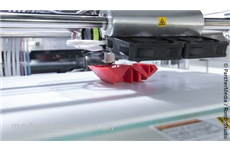
Computer vision predicts congenital adrenal hyperplasia
Researchers at the VISTA Center (Vision, Image, Speech and Text Analytics) at the USC Viterbi Information Sciences Institute (ISI) along with scholars at the Keck School of Medicine of USC and Children's Hospital Los Angeles (CHLA) have discovered strong correlations between facial morphology and congenital adrenal hyperplasia (CAH), a life-threatening genetic condition of the adrenal glands and one of the most common forms of adrenal insufficiency in children.

Identifying people at high risk of developing heart disease
More than 40% of middle-aged adults have silent coronary artery disease. Researchers have developed a new screening questionnaire to help identify individuals at the highest risk for coronary artery disease, according to late-breaking research presented today at the American Heart Association's Scientific Sessions 2020.

Elastic-free face masks can help some with allergies during COVID-19
A University of Cincinnati immunologist is recommending that individuals with contact dermatitis choose facial masks made without elastic or rubber that allow them to stay safe in the midst of COVID-19 while avoiding possible allergic reactions.

Rapid test can ID unknown causes of infections throughout the body
UC San Francisco scientists have developed a single clinical laboratory test capable of zeroing in on the microbial miscreant afflicting patients hospitalized with serious infections in as little as six hours - irrespective of what body fluid is sampled, the type or species of infectious agent, or whether physicians start out with any clue as to what the culprit may be.

Researchers 3D print biomedical parts with supersonic speed
Forget glue, screws, heat or other traditional bonding methods. A Cornell University-led collaboration has developed a 3D printing technique that creates cellular metallic materials by smashing together powder particles at supersonic speed.